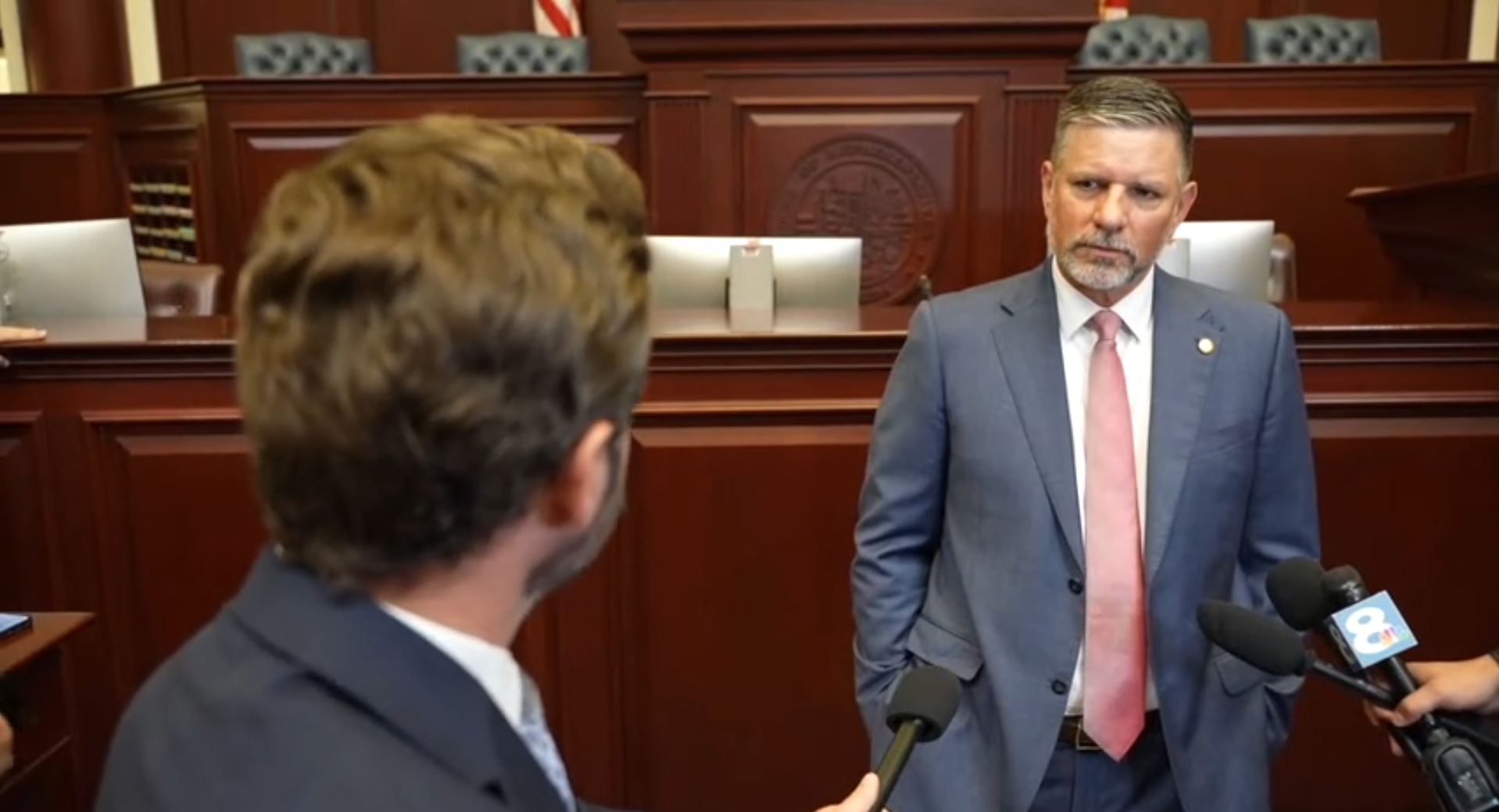TALLAHASSEE, Fla. — Florida’s finances remain strong in the short term, but new state projections warn that structural pressures could push the budget deep into the red before the decade’s end. That’s something lawmakers in Tallahassee considered this week as new leadership was designated to take over the gavels in the 2027-28 legislative sessions.
According to the Legislature’s 2025 Long-Range Financial Outlook, strategic moves during this year’s session helped flip next year’s balance from deficit to surplus — projecting a $3.8 billion cushion in FY 2026-27. But by FY 2028-29, the report forecasts a $6.6 billion deficit unless lawmakers adjust spending or revenues.
Watch full report from Forrest Saunders
The chief cost drivers are familiar: Medicaid, K-12 enrollment growth, state-employee health benefits, and recurring disaster-response funding. The latter alone now accounts for roughly $783 million a year in General Revenue transfers to the Emergency Preparedness and Response Fund— Florida’s hurricane war chest
Despite those mounting pressures, House Speaker-designate Sam Garrison (R-Fernandina Beach) insists the state will stay on solid footing.
“We have a triple-A bond rating, a balanced budget, and record reserves,” Garrison said this week. “That’s in great part to discipline and how we spend — and I don’t see that changing anytime soon.”
Garrison said Medicaid now consumes about 40 percent of the state’s budget, but he ruled out expansion as a fix to draw additional federal dollars.
“Is Medicaid expansion something you’d be interested in?” reporter Forrest Saunders asked.
“No,” Garrison replied. “I think we're seeing the wisdom of the decision that was made…These Medicaid issues have been worked through the statehouse for a number of number of years. Speaker (Danny) Perez has been very solid on this, very firm in his commitment on this. We're going to be fiscally responsible. That's our number one responsibility.”
In the Senate, incoming President Jim Boyd (R-Bradenton) said the focus will be on oversight and efficiency, not new spending. He even sounded open to a state-level audit of spending— akin to the Florida CFO’s current effort to “DOGE” cities and counties.
“We always have to pay attention to our expenditures,” Boyd said. “With the forecast we’re facing for the next several years, it’s even more incumbent upon us.”
Boyd also said he expects Florida’s property-insurance market to continue stabilizing after recent legal reforms. While he said small changes could be enacted, he dismissed the idea of another major reform package.
“We’ve got 15, 16, 17 new carriers back in Florida,” he said. “Rates are trending down. Not everybody’s have yet, but they’re moving in the right direction.”
Both chambers are exploring property-tax reforms for a potential 2026 ballot measure. A lingering concern continues to be how cuts to homesteaded property will impact the bottom lines of rural counties and cities. Garrison and Boyd pledged to protect fiscally constrained areas — though details of how are still unclear.
Agriculture, Florida’s second-largest industry, is another concern. Senate Agriculture Chair Keith Truenow (R-Tavares) said lawmakers must find ways to keep farms competitive. He warned of labor shortages and trade competition.
“We have to figure out how to keep agriculture sustainable in the state of Florida,” Truenow said. “We have to compete with foreign countries and other entities to be viable, and it's a concern. I mean, we're only about seven days away from having a food crisis in the state of Florida. If we, if you cut off all those sources, you'd be hungry in about seven days.”
Analysts say the state’s strong reserves and stable revenues give it time — but not unlimited flexibility. Without new policy or revenue changes, expenditures will continue to outpace revenues by the end of the outlook period.
Bottom line: Florida’s books look healthy for now, but the belt may need tightening soon — especially if storms, health costs, and demographic shifts hit harder than expected.
Share Your Story with Forrest

Capitol Reporter Forrest Saunders is dedicated to sharing your voice with political leaders throughout the state. He works to hold our elected leaders accountable and amplify your concerns. Let Forrest know about the issues you want state leaders to focus on.
.

AI-generated fake evidence is landing people in jail as courts struggle with new technology
From fabricated texts in domestic violence cases to fake photos in assault claims, artificial intelligence is creating new challenges for judges and juries nationwide.





